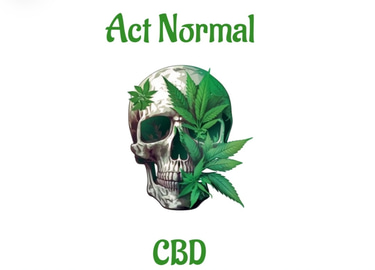Frequently asked questions and information
What is CBD?
CBD is one of at least 113 known cannabinoids derived from the hemp plant. These plant-based cannabinoids are similar in structure to the body’s own cannabinoid system, called the endocannabinoid system.
The endocannabinoid system in the body is responsible for regulating sleep, appetite, anxiety and pain. CBD binds to part of the body’s endocannabinoid receptors to boost the body’s production of its own cannabinoids.
Will CBD get me high?
Cannabidiol (CBD) does not get you high, it is THC that gives you the high that people associate with cannabis use.
Should I consult my doctor?
You should always inform your doctor of any supplements you are taking. Especially if you have liver, kidney or heart problems because you'll likely be on certain medications that your doctor will want to check are ok to use with CBD products.
Warning: Consult with your health care provider before using if you are pregnant, nursing or taking medication. If adverse reactions occur please discontinue.
This statement has not been reviewed by the food and drug administration. This product is not to diagnose, prevent, treat or cure any disease.
Are CBD and hemp Oil the same?
Hemp seed oil is made from the seeds of the hemp plant that are rich in omega 3 and 6 fatty acids – they tend to be used in cooking and cosmetics.
Hemp seeds are a food, but when you start growing the plant and extracting CBD oil from its leaves and stalks, then you’re talking about a CBD oil supplement and the manufacture of these is strictly regulated in the UK.
CBD oil can also be known as ‘hemp extract’ and is derived from the industrial hemp process that results in high CBD and lower THC containing crops – this is what you find in CBD oil supplements.
Will it cure my illness?
CBD is not to be used as a replacement for the proper medical care of a professional, always seek your doctor or health professionals advice.
CBD is to be used to as a supplement to enhance your day to day life.
Studies have shown that regular use of CBD is beneficial with the reduction of lifes stressors.
Anxiety Studies and clinical trials are exploring the common report that CBD can reduce anxiety.
Insomnia. Studies suggest that CBD may help with both falling asleep and staying asleep.
Chronic pain. Further human studies are needed to substantiate claims that CBD helps control pain. One animal study from the European Journal of Pain suggests CBD could help lower pain and inflammation due to arthritis when used regularly.
Other research identifies how CBD may inhibit inflammatory and neuropathic pain, which are difficult treat.
CBD oil strengths explained
So, what does CBD oil strength actually mean? It’s about the volume of CBD found in an oil. For example, a 5000mg CBD oil might sound like it’s high strength, but if it’s in a 500ml bottle, that’s just 10mg of CBD per 1ml dropper. To understand the strength of your CBD, it’s important to know how much you’re getting per 1ml dosage (our recommended daily amount). This can usually be done by dividing the total number of milligrams by the millilitres found in the bottle.
Understand the Difference Between CBD Oil Consumption Methods
Ingesting (swallowing) CBD has a systemic effect, which means the CBD enters the bloodstream and works throughout the body. This method works quickly and is effective for treating symptoms like anxiety and generalised pain.
You can apply CBD oil topically in a cream or balm to target a specific area of the body, for example, massaging it into an aching joint or sore muscle. Topical CBD does not get absorbed into the bloodstream.
And finally, CBD can be inhaled, either from a pre-filled cartridge used in a vape device or e-cigarette or through a dried hemp flower vaporiser. Like oral consumption, inhaled CBD also has a systemic effect on the body. Important: You must never vaporise and inhale oral CBD oil, as the carrier oil is harmful when taken in this way. Always use a formulation specifically intended for inhalation.
Some of the factors that will influence your ideal dosage include:
Weight and body size - larger people can typically tolerate higher doses than smaller people
Metabolism - those with a fast metabolism may need higher or more frequent doses
Your medical condition or symptoms - for example, you might require higher doses for pain relief than you would for anxiety
The strength or ‘potency’ of the CBD oil
Whether you are new to CBD or have built up some tolerance over time
The CBD oil absorption technique, as some ways of taking CBD work more quickly than others
Conclusion
There is no one standard CBD oil dose that suits every user. A person’s weight, metabolism, medical condition and method of consumption can all impact ideal dosing.
